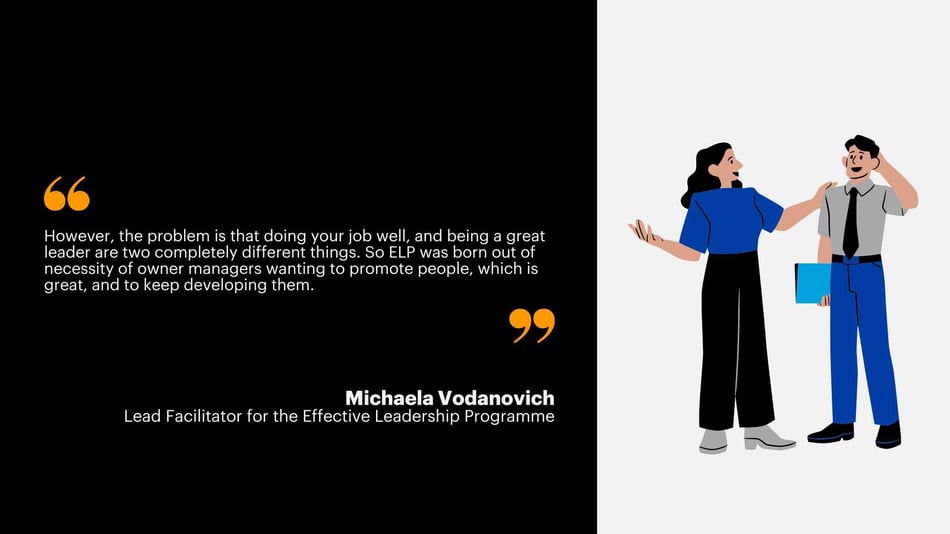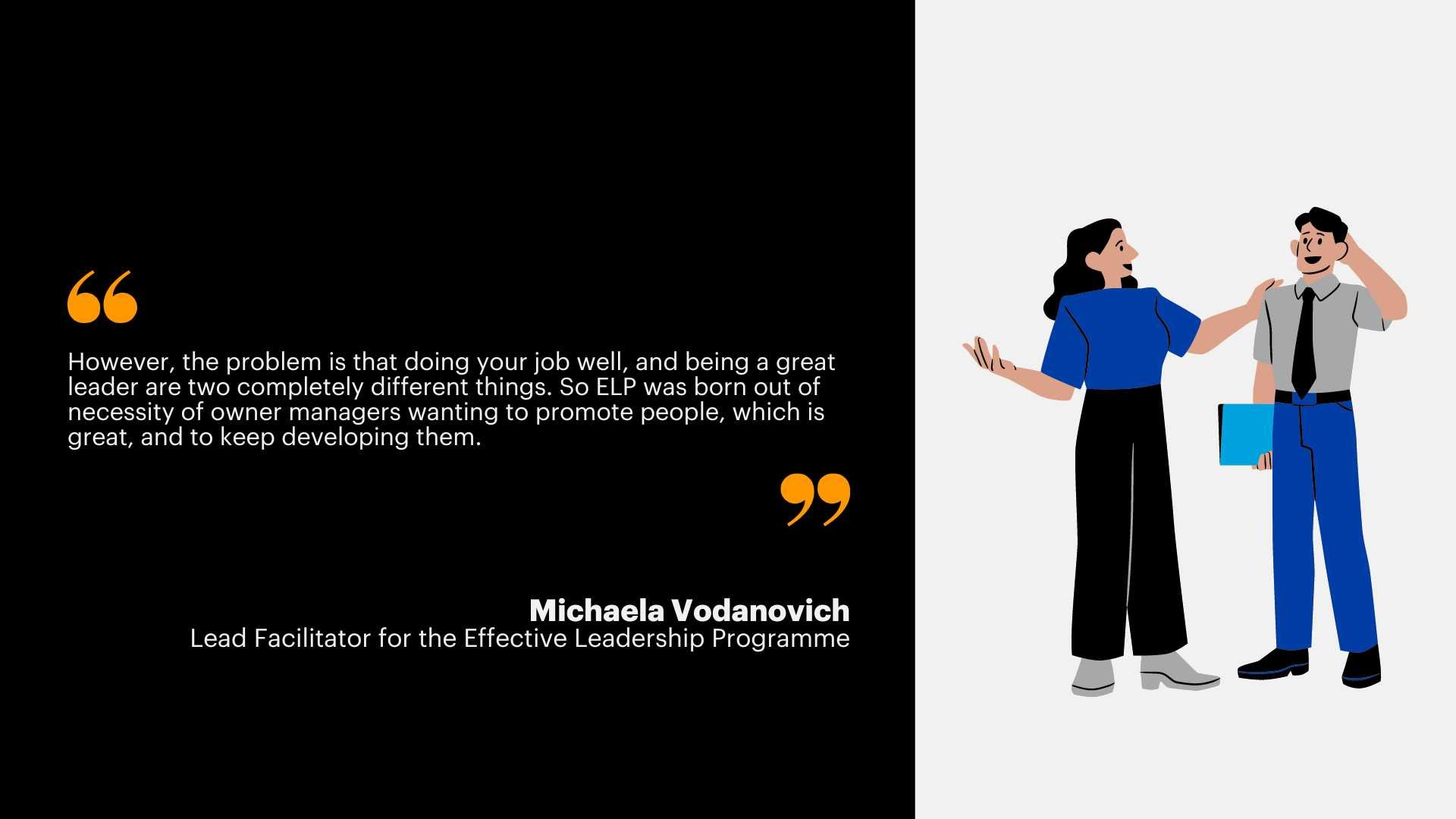Upskilling My Team is Critical

Upskilling – increasing an employee’s learning through continuous training and development is vital for success. There’s the practical – the accounting personnel who need to get up-to-speed on the business’s new cloud-based accounting software, to more human-facing skills brought about by the ever-changing needs of people and the way we work.

Three things happen when organisations follow a continuous path of upskilling. Leaders become “better” leaders, their teams become more productive and efficient, and a culture develops where the next generation of leaders are encouraged and nurtured to come on the journey with them.
In our experience, Icehouse programmes like the Effective Leadership Programme (ELP) and the Emerging Leaders Programme provide a much-needed opportunity for leaders to upskill and answer today’s workplace challenges.
“New Zealand businesses are really good at promoting people into leadership roles and then not providing training to support them,” says Michaela Vodanovich, Lead Facilitator for ELP. “Often they will find somebody who's very good at their job and, because they lead by example, the reaction is, ‘They’ll be a great team leader’.
“However, the problem is that doing your job well, and being a great leader are two completely different things. So ELP was born out of necessity of owner managers wanting to promote people, which is great, and to keep developing them.”
As the nature of work has changed dramatically in recent times, previous leadership skills, styles, and ways of leading just don’t cut it anymore, according to Michaela.
“People want flexibility, they want to be heard, they need more attention and communication. The managers who are able to recognise how much more they can get from people by engagement, for example, are the ones that are seeing, and will see, success.”
“[ELP made me] aware of the different approaches to leadership, leadership styles and how they can make a difference in every conversation. I also learnt that it’s okay to not have all the answers right there on the spot for people. I can go away from a situation, analyse what’s been discussed, what needs to be done, and then bring a group together and have the conversation with them – instead of reacting on the spot,” says Mark Wharekawa, of Patton Engineering Ltd and an ELP alumni.
“Tapping into people's different personalities is a challenge, but it’s one that I really enjoy. I like working out what I need to do to motivate them. Some people might need a stern word and you need to show more empathy with others for them to thrive,” says Mark Witkowski, Construction Foreman for Gemco Construction Ltd, and an Effective Leadership Programme (ELP) alumni.
Upskilling can also help existing leaders find a new take on exiting ideas, says Michaela. “You might be a leader who's been in charge of a team for the last five years, but you’re just starting to find that things aren't going quite as well as you’d like them to. Why aren’t you getting the same kind of results that you did, say, 5-10 years ago?
“It's probably because your team dynamic has changed, so you need to actually spend time away from the business to really examine who's in your team and develop ways to motivate them to do the best work of their lives.”
The Icehouse Emerging Leaders Programme is for employees new to management and supervisory roles who need to upskill themselves to lead others confidently.
As Icehouse coach and Programme Facilitator Kim Hill explains, “Many of the emerging leaders I meet have been in the organisation for quite some time. They've been identified as a leader, they're already showing those qualities, they’re valuable to the business, but they need that extra learning to grow into that leadership role.
“Making the transition from ‘one of the team’ is tough; they've suddenly got a team of 20 looking up to them, they've got to do workflow planning and one hundred other things. But most of all, they’ve got to lead.
“So they come on the programme and get to learn about branding, marketing, business models and so on, but they also learn to get stuff done, to be held accountable, to understand what it means to have courageous conversations, deal with new staff situations, problems and challenges.
When leaders are upskilled, the benefits filter down company-wide. The results? “[I’m] more confident in what I am doing and delegating rather than trying to do everything myself and being unable to do it efficiently,” says one programme alumni.
“[I]m] trying to personally focus on the small successes and trying to drill into individual jobs and understand why the results are what they are,” says another.
Upskilling your team shows employees that there are routes for them to excel in a career with a business that creates opportunities for promotion and encourages people to develop the skills they need to succeed now and far into the future.
Further, there’s more and more evidence to suggest that upskilling teams helps organisations stay competitive by closing skills gaps, increases employee engagement and retention, and boosts performance and morale.
How are you upskilling your team?
For information on programmes, workshops and business coaching services from The Icehouse, click here.
For more business ownership and leadership advice, check out more of our resources.
Icehouse Alumni? For exclusive content on Icehouse Central, register now.


